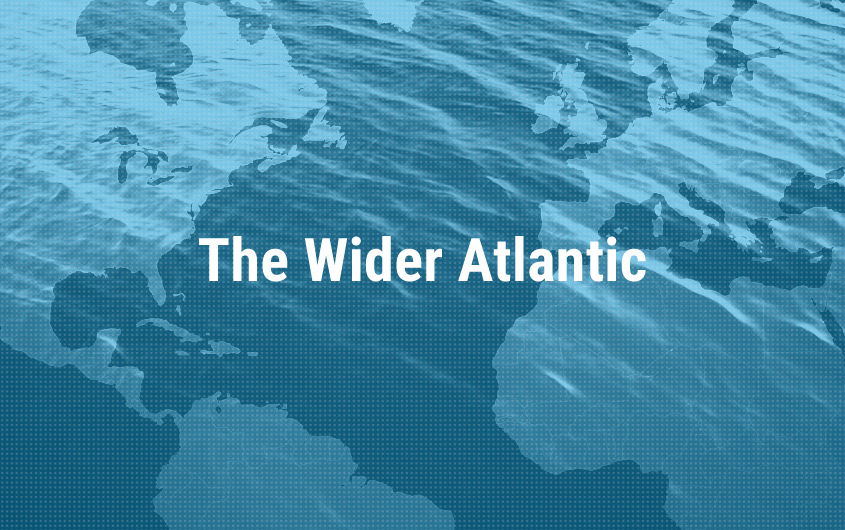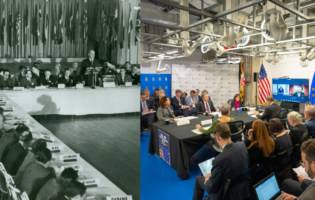
America’s Four Economic Families

Peter S. Rashish
Vice President; Director, Geoeconomics Program
Peter S. Rashish, who counts over 25 years of experience counseling corporations, think tanks, foundations, and international organizations on transatlantic trade and economic strategy, is Vice President and Director of the Geoeconomics Program at AICGS. He also writes The Wider Atlantic blog.
Mr. Rashish has served as Vice President for Europe and Eurasia at the U.S. Chamber of Commerce, where he spearheaded the Chamber’s advocacy ahead of the launch of the Transatlantic Trade and Investment Partnership. Previously, Mr. Rashish was a Senior Advisor for Europe at McLarty Associates, and has held positions as Executive Vice President of the European Institute, on the Paris-based staff of the International Energy Agency, and as a consultant to the World Bank, the German Marshall Fund of the United States, the Atlantic Council, the Bertelsmann Foundation, and the United Nations Conference on Trade and Development.
Mr. Rashish has testified on the euro zone and U.S.-European economic relations before the House Financial Services Subcommittee on International Monetary Policy and Trade and the House Foreign Affairs Subcommittee on Europe and Eurasia and has advised three U.S. presidential campaigns. He is a member of the Board of Directors of the Jean Monnet Institute in Paris and a Senior Advisor to the European Policy Centre in Brussels. His commentaries have been published in The New York Times, the Financial Times, The Wall Street Journal, Foreign Policy, and The National Interest, and he has appeared on PBS, CNBC, CNN, and NPR.
He earned a BA from Harvard College and an M.Phil. in international relations from Oxford University. He speaks French, German, Italian, and Spanish.
__
The United States may have two major political parties, but it is becoming clear that it has four economic families:
- Small government + free trade = Mainstream Republicans
- Small government + protectionism = Populist Republicans
- Big government + protectionism = Populist Democrats
- Big government + free trade = Mainstream Democrats
If it is true that the most important distinction today is not right/left (the role of government in society) but rather open/closed (the degree of international economic engagement), then the two factions co-habiting inside each U.S. political party are unnatural bedfellows.
So why should we expect the current political sorting to remain fixed, and not to evolve over time to reflect more closely the reality of America’s four economic families?
After all, this reorganization of voters is exactly what Emmanuel Macron achieved in France on his way to victory in the French presidential election this year and then the parliamentary elections that followed shortly thereafter. His new La République en Marche (Republic on the Move) party assembled voters from both the left and the right who were broadly in favor of European integration and globalization. So now the French political landscape is characterized not only by parties that align themselves along a left/right continuum, but also by the biggest one defining itself by where it stands on economic openness.
Would such a realignment of the U.S. political party system along an open/closed axis ever be possible?
The United States has often been called “exceptional” by leadership of both parties. That may be no more true than when it comes to the role of government. Unlike Germany, for example, where there is a consensus across the right/left divide that government needs to play an essential role in providing universal education, infrastructure, a strong social safety net, and workforce training, in the much more individualistic culture of the United States there remains a deep skepticism among many citizens about the ability of the government (especially the federal government) to improve their lot.
So long as this American exceptionalism persists, free traders and protectionists are likely to continue to co-habit, however uneasily, within both the Republican and Democratic parties, united mainly by their embrace or rejection of activist government. Vive la différence?








